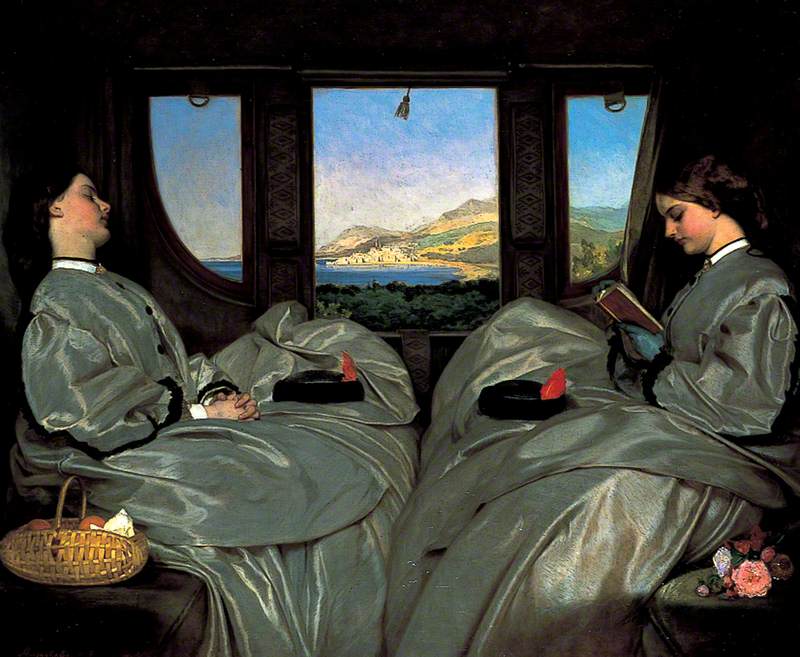
Text source: The Oxford Dictionary of Art and Artists (Oxford University Press)
1816–1863
British

Text source: The Oxford Dictionary of Art and Artists (Oxford University Press)
Augustus Leopold Egg [commonly known as Augustus Egg] was born at 1 Piccadilly, London, England on 2 May 1816. His father, Joseph Egg (1775–1837), was a wealthy gunmaker who had emigrated to England from Alsace. After attending Henry Sass's Academy in Bloomsbury, London, he entered the Royal Academy Schools in London in March 1836. The following year, with fellow RA Schools students Richard Dadd, William Powell Frith, Henry Nelson O'Neil, and John Phillip, he founded the Clique, a sketching club.
Egg became known for historical paintings, one of the most successful of which was "Queen Elizabeth Discovers She is no Longer Young", exhibited at the Royal Academy in 1848, and for his paintings that tackled difficult contemporary social issues such as his triptych "Past and Present" (1858), which took the theme of the "fallen woman". Among his masterpieces is considered to be his painting "The Travelling Companions" (1862) in which two elegantly dressed women are depicted sitting in a railway carriage. It was painted the year before his death.
Egg exhibited for the first time at the British Institution in London in 1837. The following year he exhibited at the Royal Academy in London and continued to do so regularly until 1860. He also exhibited at the Suffolk Street Gallery in London, and at the annual exhibitions in Birmingham and Liverpool in 1839, and at Manchester in 1840. He was elected as Associate of the Royal Academy (ARA) in 1848 and a Royal Academician (RA) in 1860.
Egg was an artist with a strong moral and social conscience and this is reflected in much of his work. He was a friend of Charles Dickens and with him in 1851 founded the Guild of Literature and Art, a philanthropic organisation intended to provide welfare payments to artists and writers in financial difficulties.
Egg was influenced by the paintings of the Pre-Raphaelite Brotherhood and was a collector of the work of William Holman Hunt.
Egg is considered to have been a fine actor and between 1847 and 1857 appeared in numerous plays staged by Dickens’ company of amateurs throughout England and Scotland for various charitable causes. It is evident that Egg was well respected by the theatrical community. He was elected a member of the Garrick Club in 1849, nominated by Charles Kean and seconded by Dickens and William Makepeace Thackeray.
After 1860 he exhibited little because of increasingly poor health. Throughout his adult life he suffered from pulmonary illnesses and subsequently died from asthma while staying in Algiers on 26 March 1863.
Text source: Art History Research net (AHR net)